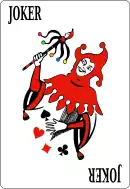aon
See also: Appendix:Variations of "aon"
Breton
Etymology
From Middle Breton oun, from Proto-Celtic *oβnus (“fear”) (compare Welsh ofn, Cornish own, Old Irish ómun).
Pronunciation
- IPA(key): /ɔ̃n/, /ˈãwn/
Irish
Pronunciation
Numeral:
- (Munster) IPA(key): /eːn̪ˠ/[1]
- (Connacht) IPA(key): /iːn̪ˠ/[2]
- (Ulster) IPA(key): /iːnˠ/, /iːn̪ˠ/, (older) /ɯːnˠ/[3]
Determiner:
Etymology 1
From Old Irish óen,[5] from Proto-Celtic *oinos (compare Welsh un), from Proto-Indo-European *h₁óynos (compare Latin ūnus, Old English ān).
| < 0 | 1 | 2 > |
|---|---|---|
| Cardinal : aon Ordinal : céad, aonú Personal : aonar Attributive : (aon)...amháin | ||
Usage notes
- Used independently; cannot be used before nouns without the further modifier amháin (“only”) (with which it is not required), the definite article, or a possessive determiner (when used by itself with nouns, it means "any"; see following section). Unlike 2–10 and 12, aon can be used to refer to people; the personal form aonar is largely confined in the meaning of “one person” to literary usage and is usually used idiomatically to mean “alone” or “single”. When used independently, it is always preceded by the particle a, which mutates it to haon:
- a haon, a dó, a trí... ― one, two, three...
- bus a haon ― bus number one
- a haon a chlog ― one o’clock
- But:
- (aon) lá amháin ― one day
- aon chrann amháin/crann amháin ― one tree
- an t-aon duine ― the one person
- m'aon chara ― my one friend
See also
Declension
Declension of aon
See also
| Playing cards in Irish · cártaí imeartha (layout · text) | ||||||
|---|---|---|---|---|---|---|
| aon | dó | trí | ceathair | cúig | sé | seacht |
 |
 |
 |
 |
 |
 |
 |
| ocht | naoi | deich | cuireata | banríon | rí | fear na gcrúb, buachaill mór |
Etymology 2
(This etymology is missing or incomplete. Please add to it, or discuss it at the Etymology scriptorium.)
Alternative forms
Noun
aon m (genitive singular aoin, nominative plural aoin)
- (masonry) breast, chimneypiece
- (nautical, of boat)) front part of the gunwale
Declension
Mutation
| Irish mutation | |||
|---|---|---|---|
| Radical | Eclipsis | with h-prothesis | with t-prothesis |
| aon | n-aon | haon | t-aon |
| Note: Some of these forms may be hypothetical. Not every possible mutated form of every word actually occurs. | |||
References
- Sjoestedt, M. L. (1931) Phonétique d’un parler irlandais de Kerry (in French), Paris: Librairie Ernest Leroux, § 89, page 49
- de Bhaldraithe, Tomás (1975) The Irish of Cois Fhairrge, Co. Galway: A Phonetic Study, Dublin Institute for Advanced Studies, § 375, page 84
- Quiggin, E. C. (1906) A Dialect of Donegal, Cambridge University Press, § 72, page 31
- Finck, F. N. (1899) Die araner mundart (in German), volume II, Marburg: Elwert’sche Verlagsbuchhandlung, page 94
- G. Toner, M. Ní Mhaonaigh, S. Arbuthnot, D. Wodtko, M.-L. Theuerkauf, editors (2019), “óen”, in eDIL: Electronic Dictionary of the Irish Language
Further reading
- Ó Dónaill, Niall (1977) “aon”, in Foclóir Gaeilge–Béarla, Dublin: An Gúm, →ISBN
- Entries containing “aon” in English-Irish Dictionary, An Gúm, 1959, by Tomás de Bhaldraithe.
- Entries containing “aon” in New English-Irish Dictionary by Foras na Gaeilge.
Manx
Scottish Gaelic
| 10 | ||||
| ← 0 | 1 | 2 → | 10 → | |
|---|---|---|---|---|
| Cardinal: aon Standalone: a h-aon Ordinal: ciad Ordinal abbreviation: 1d Personal: aonar Multiplier: aon-fhillte, singilte Fractional: iomlan | ||||
Etymology
From Old Irish óen, from Proto-Celtic *oinos (compare Welsh un), from Proto-Indo-European *óynos (compare Latin unus, Old English ān).
Pronunciation
- IPA(key): /ɯ̃ːn/ (stressed), /ən/ (unstressed)
Audio (Lewis) (file)
Usage notes
- Lenites the following word if it begins with b, c, f, g, m or p.
- When standing alone, preceded by a h-:
- Tha aon cheist agam. ― I have one question.
- Tha a h-aon agam cuideachd. ― I have one as well.
Derived terms
Related terms
- aon-bhriathrach (“one-word”, adj)
- aon-ghuthach (“unanimous; symphonious, concordant; unison; monotonous”, adj)
- aon-mhargadh m (“monopoly”)
- aonaranach (“lonely”, adj)
- aonaranachd f (“loneliness”)
- aonar m (“one (person)”)
- aontaich (“agree, assent”, verb)
See also
- a' chiad (“first”)
Mutation
| Scottish Gaelic mutation | |||
|---|---|---|---|
| Radical | Eclipsis | with h-prothesis | with t-prothesis |
| aon | n-aon | h-aon | t-aon |
| Note: Some of these forms may be hypothetical. Not every possible mutated form of every word actually occurs. | |||
References
- Edward Dwelly (1911) “aon”, in Faclair Gàidhlig gu Beurla le Dealbhan [The Illustrated Gaelic–English Dictionary], 10th edition, Edinburgh: Birlinn Limited, →ISBN
- G. Toner, M. Ní Mhaonaigh, S. Arbuthnot, D. Wodtko, M.-L. Theuerkauf, editors (2019), “óen”, in eDIL: Electronic Dictionary of the Irish Language
Unami
Etymology
From Proto-Algonquian *awanwi (“it is fog, it is foggy”). Cognate with Munsee awán (“it is fog”), Ojibwe awan (“it is foggy, it is fog”), Mohegan-Pequot awan (“it is foggy, there is fog”).
References
- Rementer, Jim with Pearson, Bruce L. (2005) “aon”, in Leneaux, Grant, Whritenour, Raymond, editors, The Lenape Talking Dictionary, The Lenape Language Preservation Project
This article is issued from Wiktionary. The text is licensed under Creative Commons - Attribution - Sharealike. Additional terms may apply for the media files.